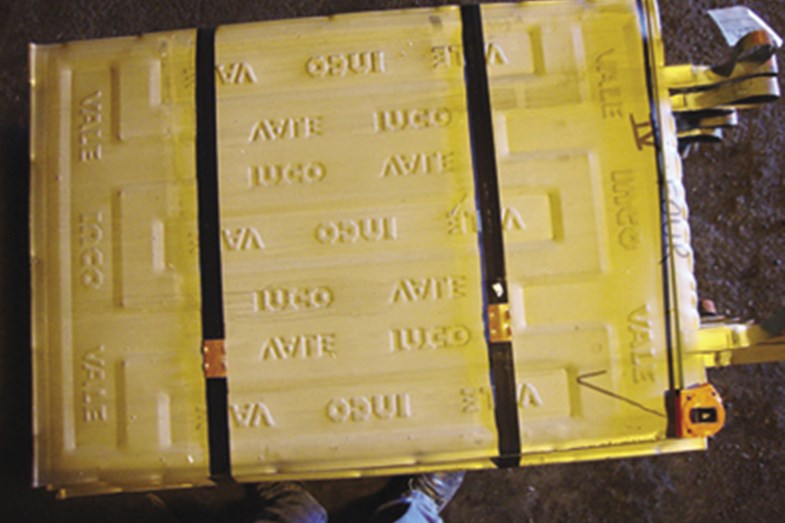Manitoba courts have dismissed the appeal of a company found liable for damages resulting from its purchase of nickel stolen from Vale in Thompson nearly 10 years ago.
Urbanmine Inc. appealed a summary judgment awarded to Vale in a 2020 decision, arguing that a trial was needed to determine how much responsibility Vale bore for the losses for not ensuring that its premises were secure and that the nickel it stored there was not being stolen.
The Court of Appeal rejected that argument, pointing out that Vale notified police as soon as the thefts were discovered and prevented further losses.
“I am of the view that Urbanmine has not demonstrated any error in principle by the motion judge, nor any palpable and overriding error with respect to the facts and the evidence referred to in her analysis,” wrote Manitoba’s Chief Justice Richard Chartier in his explanation of the court’s unanimous Feb. 9 decision. “Moreover, I have not been convinced that her decision is wrong, let alone so clearly wrong as to amount to an injustice. To the contrary, I am of the view that she interpreted and applied the law correctly and that her decision to grant the summary judgment motion was a proper exercise of judicial discretion.”
A May 2013 theft of 16,000 pounds of nickel led to criminal charges being laid against owners and employees of Schwartz Bros., several of whom later pled guilty to committing the thefts and were ordered to pay varying amounts of restitution to Vale. The thefts had begun 10 months earlier and 483,396 pounds of nickel overall were stolen from the company’s operations in Thompson.
Urbanmine Inc. admitted purchasing the nickel from Michael Schwartz and/or Schwartz Bros for nearly $2.5 million between July 2012 and May 2013 and reselling it to ELG Metals Inc. and EOS Metals for about $3.4 million during the same timeframe, though the company says it was unaware that the nickel was stolen at the time.
Under civil law, purchasing and selling another’s property is a damage to the rightful owner regardless of whether the subsequent purchaser and/or seller were aware that it legally belonged to someone else.
Urbanmine argued that the lawsuit needed to go to trial because Vale had failed to mitigate losses by not having its nickel stored securely and failing to properly monitor their premises and inventory. The judge rejected this argument and the need for a trial however, as mitigation only applies once a civil wrong has been discovered and the fact of whether Vale was negligent in preventing the thefts does not affect the amount lost as a result of them.
The exact amount of these losses will be determined following Urbanmine and Vale providing submissions detailing how they calculate the damages.
Defendants associated with Schwartz Bros. who are also affected by this judgment never filed statements of defence against Vale’s lawsuit, which was filed in September 2013, and were noted to be in default about a year later. Because they took no steps regarding the civili proceedings, these defendants were no longer entitled to notice of any further proceedings against them unless the court ordered it and are deemed to have admitted the facts outlined in Vale’s statement of claim. As a result, the judge granted default judgements against each of them, finding them individually and jointly liable for the full extent of losses Vale incurred as a result of these thefts, minus any restitution they have already paid.




